What Are The 23 Worst Foods For Brain & Memory Health?
You might think your diet only affects your waistline, but it’s not just about heart health or weight management. Your brain health is on the line too! Yes, you heard it right. The food you consume, whether a healthy diet or fried foods, can either support your overall brain health or sabotage it.
What are the 23 worst foods for memory? Following a mind diet with healthy fats is key. Some foods can damage brain cells and cause inflammation, leading to cognitive impairment and diseases like Alzheimer’s and dementia.
The link between nutrition and cognitive function is undeniable. So, if you’re experiencing brain fog, memory issues, or cognitive decline, it could be due to poor nutrition affecting your nervous system and potentially leading to dementia or other neurodegenerative diseases.
Lack of essential nutrients can significantly impact your brain health. A balanced diet, rich in healthy fats and nutrients, is essential not only for physical well-being but also for overall brain health and mental wellness of the mind.
Identifying What Are The 23 Worst Foods for Memory
Here is a list of types of foods that some research suggests may hurt brain health when consumed in excess:
- Sugary Drinks: Excess sugar, especially from sugary drinks, is linked to lower brain volume and poorer memory.

2. High Fructose Corn Syrup (HFCS): This may lead to insulin resistance in the brain.

3. Refined Carbs: High consumption can impair brain function and worsen memory.
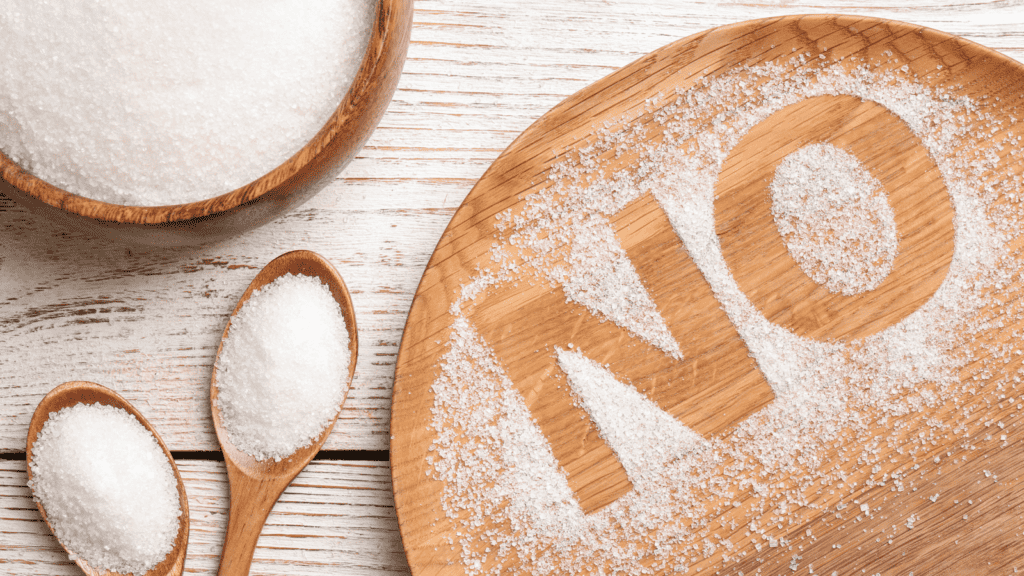
4. Processed Foods: Often high in unhealthy fats, sugars, and additives.
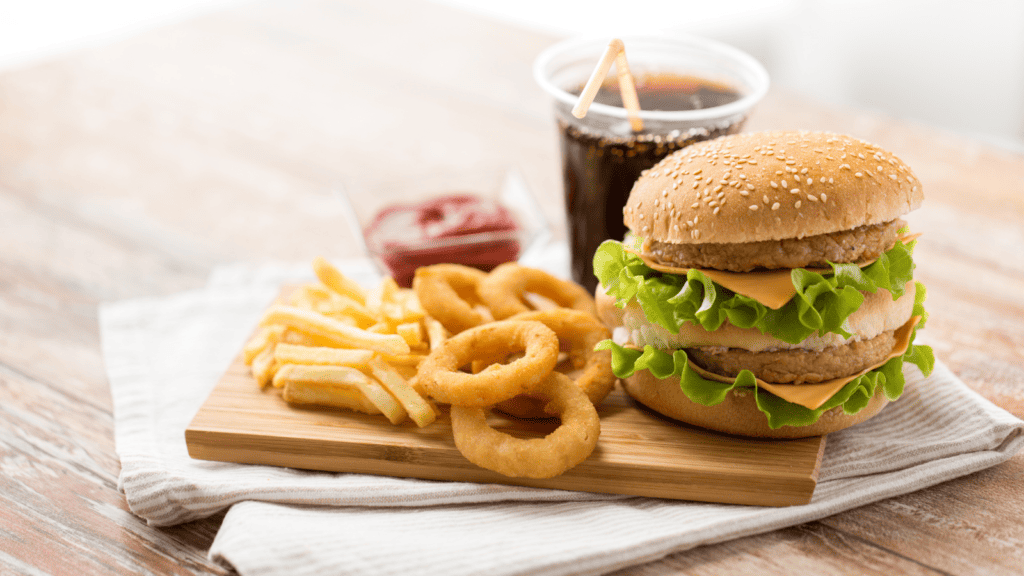
5. Trans Fats: Found in margarine, fried foods, and packaged snacks; associated with slower brain function.

6. Saturated Fats: Found in red meat, butter, and cheese, may impair brain function if consumed in high quantities.

7. Artificial Sweeteners: Some studies suggest they can affect cognitive function, but more research is needed.

8. Alcohol: Heavy drinking is linked to cognitive decline.

9. Mercury-Laden Seafood: High levels of mercury can harm the brain.

10. Aspartame: Some people report neurological concerns, but the evidence is inconsistent.

11. Fried Foods: Frequently contain trans fats and may contribute to neuroinflammation.

12. Processed Meats: High consumption has been associated with poor cognitive outcomes.

13. Fast Food: Typically high in unhealthy fats, sugars, and sodium.

14. Canned Foods with BPA: BPA (Bisphenol A) may affect the brain, particularly in developing individuals.
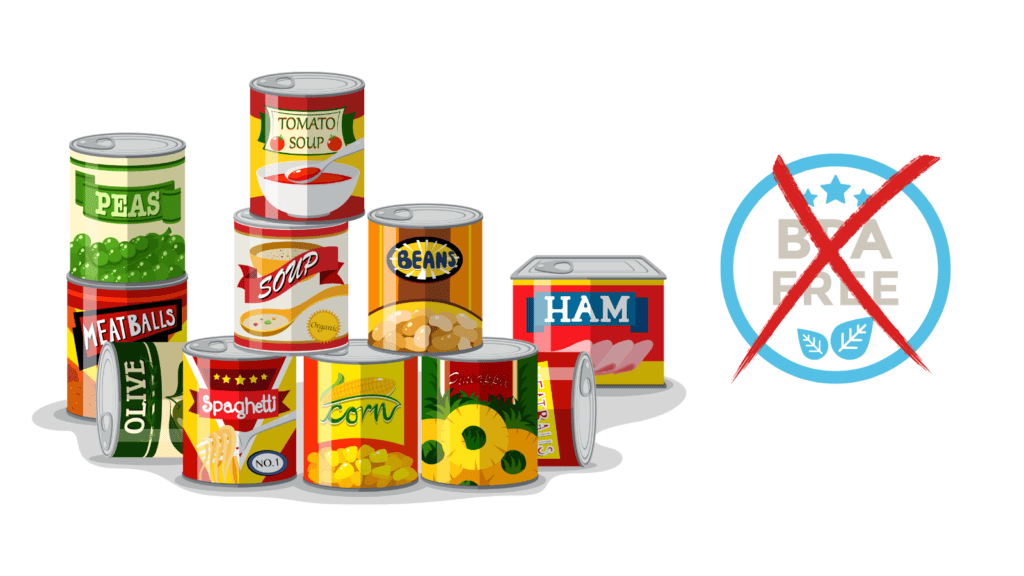
15. High-Sodium Foods: May impair cognitive function through vascular health.

16. Diet High in Red Meat: Some studies show an association with cognitive decline.
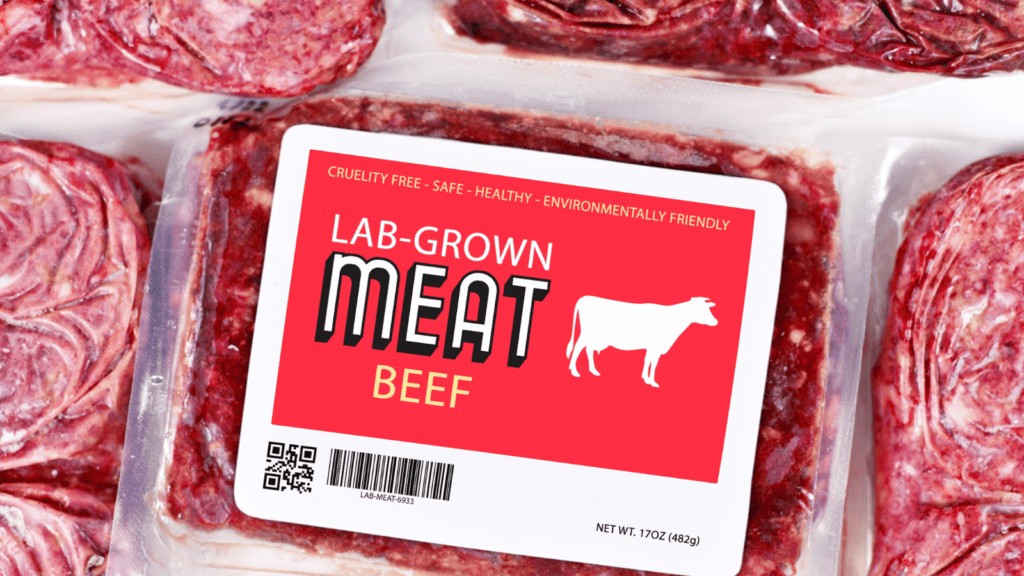
17. Artificial Colors and Preservatives: Some may have neurological effects, though the evidence is limited.
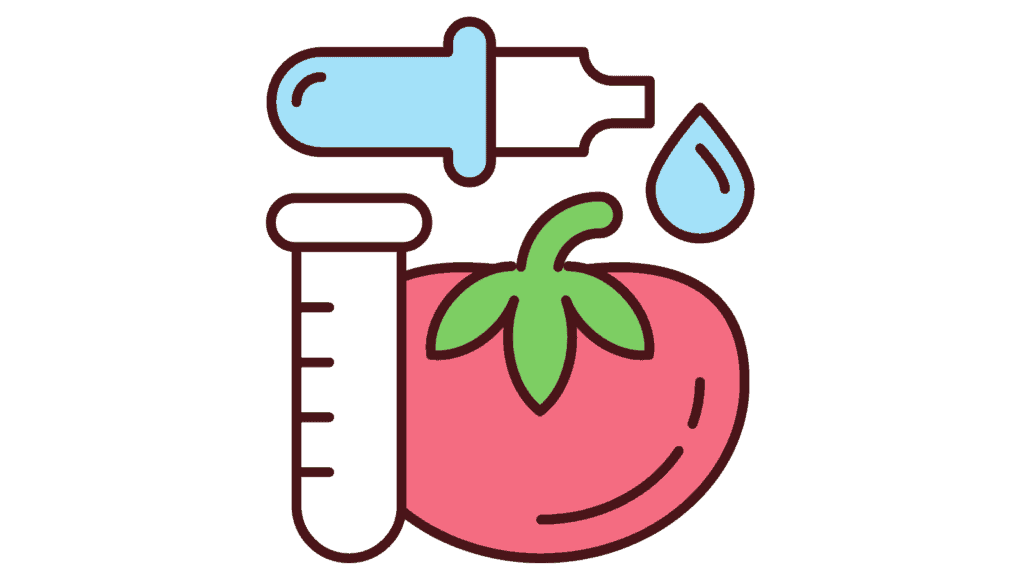
18. Highly Processed Vegetable Oils: These can be pro-inflammatory due to high omega-6 fatty acids.

19. Caffeine Overuse: Excessive caffeine can disrupt sleep and contribute to anxiety.

20. Energy Drinks: High in caffeine and sugar, may affect brain health.

21. White Breads and Pastas: These refined carbs can affect brain health like sugar.
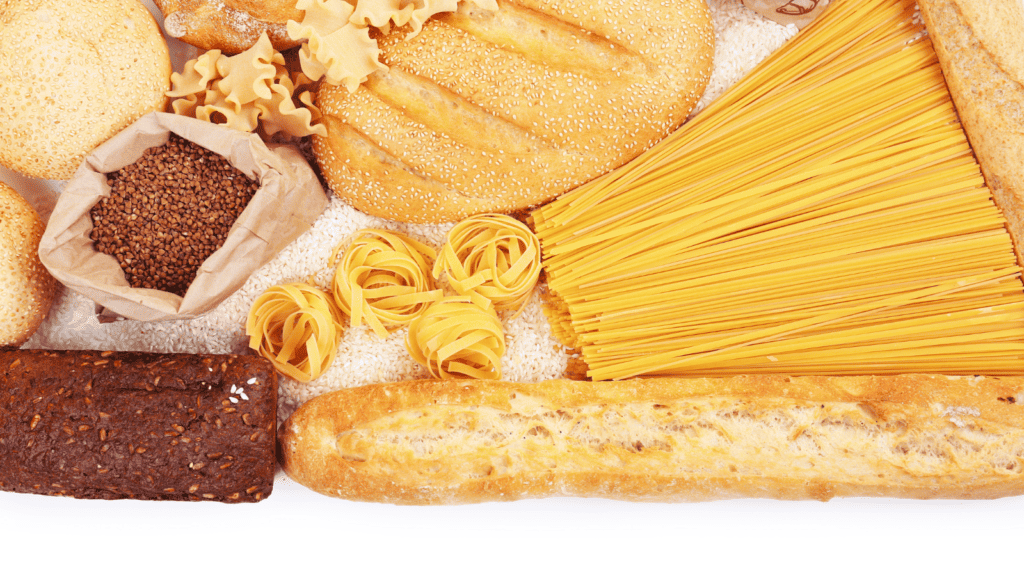
22. Diet Sodas: Some studies suggest an association with an increased risk of stroke and dementia.
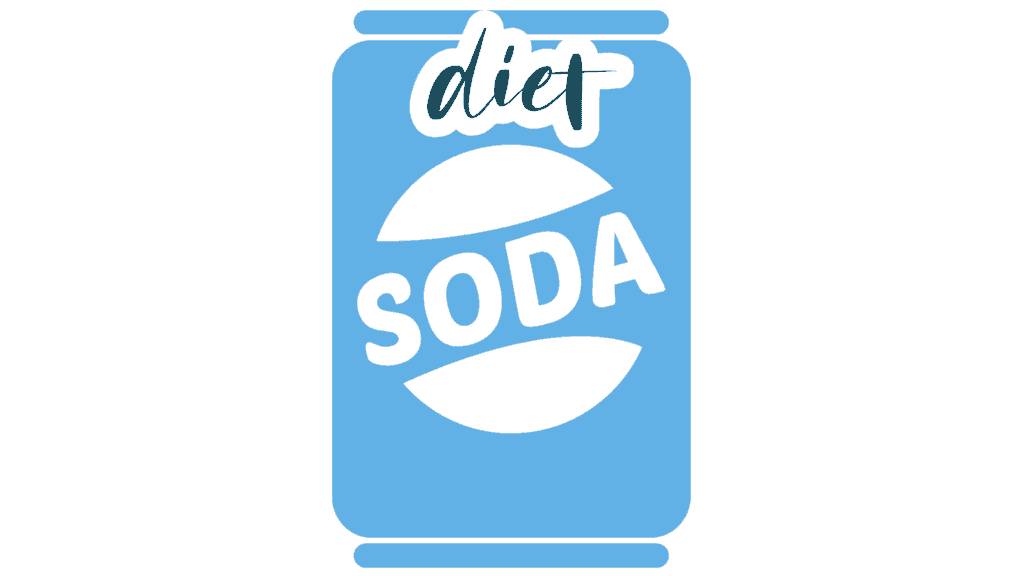
23. Excessive Consumption of Snack Foods (chips, crackers, etc.): Often high in trans fats, refined sugars, and sodium.
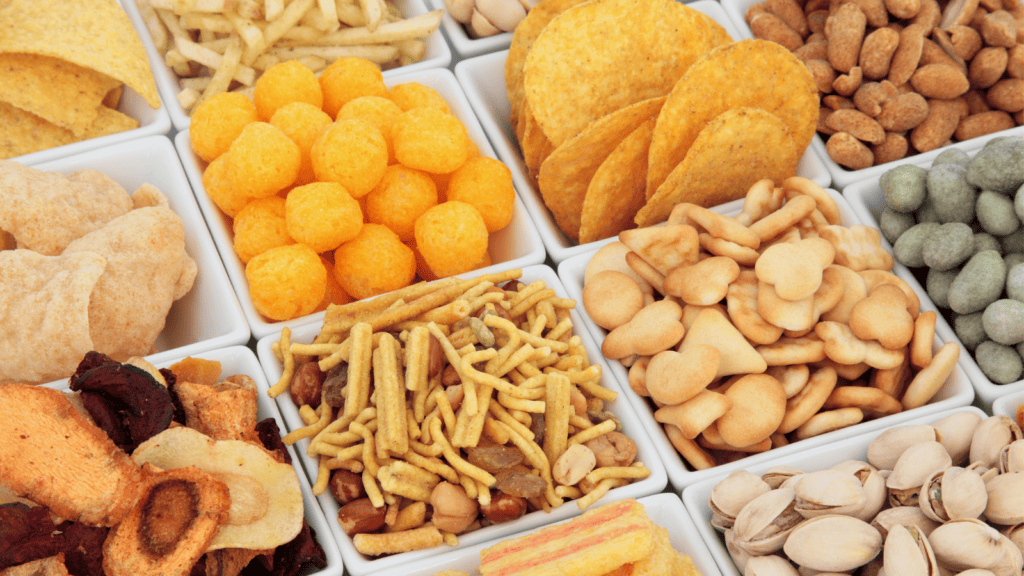
It’s important to emphasize that moderation is key. Many of these foods can be part of a balanced diet when consumed in moderation. Excessive consumption is more likely to contribute to health problems, including potential adverse effects on brain health.
Also, research in nutrition and brain health is rapidly evolving. Always consult with a healthcare professional or a registered dietitian before making significant changes to your diet, particularly if you have existing health conditions.
Please note that the risks associated with these foods can vary among individuals based on genetics, overall health status, and other factors. Always consult a healthcare professional for advice tailored to your specific circumstances.
Common Culprits
Let’s cut to the chase. Certain foods can mess with your memory function. These worst foods often seem harmless, but they’re not.
- Fried food
- Pastries and sweets
- White bread
- Processed meats
- Instant noodles
Processed Foods’ Impact
Processed foods? More like processed enemies for your brain! Unlike antioxidants and nuts, they’re packed with additives, unhealthy fatty acids, sugars, and artificial sweeteners that impair memory.
A steady diet of trans fats can lead to memory problems, dementia, and cognitive decline over time due to damage to brain cells.
Sugary Drinks: Sweet Poison?
Sugary drinks are another big no-no. Sure, they taste good,n but they’re linked to memory loss. Think twice before you reach for that soda or sweetened tea laced with aspartame or that cup of alcohol! Here’s a tip: opt for healthier alternatives.
Unhealthy Fats and Cognition
Unhealthy fats also play a role in cognitive decline. Trans fats found in fried and baked goods can damage brain cells, impacting memory function negatively.
Remember, your diet plan significantly impacts how well your brain functions, influencing cells and potentially affecting dementia, according to studies. Choose wisely!
Scientific Reasons Behind Their Negative Impact
Sugar’s Brain-Busting Effect
Sugar, that sweet stuff we love, can cause some severe damage to your brain. Several studies, including a notable survey of dementia, have shown a link between a high-sugar diet and cognitive problems and damage to brain cells potentially exacerbated by alcohol. Excessive sugar intake triggers oxidative stress, leading to a decline in brain function.
Trans Fats: A Neural Nightmare
Trans fats are another culprit affecting our brains. Antioxidants, often found in many processed foods, have been linked to neural pathway damage, potentially affecting brain cells and leading to conditions like dementia. Meanwhile, substances like alcohol can exacerbate this issue.
A recent study revealed that consuming unhealthy fats, like some oils in certain diet plans, increases the risk of cognitive decline, potentially damaging brain cells and leading to dementia.
Artificial Sweeteners: Not So Sweet After All
Artificial sweeteners might seem like an excellent alternative to sugar, but they adversely affect the brain. Inflammation and dementia disrupt the brain’s chemical balance, causing an increased risk of mood disorders and other cognitive issues. Some examples can help illustrate this.
Sodium Overload: Salty Situation for Brain Health
Lastly, let’s talk about salt. Consuming too much sodium has adverse effects on cognitive health. It stresses the cardiovascular system, eventually affecting the brain, leading to memory loss and decreased concentration.
So there you go! These are examples of how certain foods can negatively impact our brains’ health and functions. Remember, moderation is key.
Long-Term Effects of Unhealthy Food Consumption
Chronic diseases like heart disease, diabetes, and dementia often follow poor dietary habits, affecting brain cells and cognitive function. Seeking help is essential.
Excessive consumption of unhealthy fats and high sugar intake, without a balanced diet plan, can lead to obesity, a risk factor for chronic diseases like dementia. This can hinder the help needed for brain cells.
Obesity isn’t just about fitting into your jeans; it’s a ticket to dementia too. Studies show a connection between obesity and an increased risk of cognitive decline. Imagine forgetting the name of your first pet or where you left your keys. Scary, right?
Sour foods aren’t only bad for the waistline but also the brain. Long-term consumption can cause cognitive decline. Dementia is slowly erasing all your precious brain memories, one diet choice at a time, but some foods can help.
But wait, there’s more! These unhealthy foods are not just party poopers but potential killers too! They contribute to Alzheimer’s, one of the most feared neurodegenerative diseases.
Who would have thought that those greasy fries could do so much damage to your brain? A proper diet can help reduce the risk of dementia.
Here’s the deal:
- High intake of unhealthy fats: Leads to heart disease
- Excessive alcohol consumption: Increases risk for high blood pressure
- High levels of sugar intake in your diet can cause insulin resistance leading to diabetes, potentially affecting your brain and not helping to prevent dementia.
In brief, these elements of your diet can trigger inflammation and long-term health issues such as dementia, a chronic brain disorder, and other neurodegenerative diseases, which a proper diet can help manage.
So next time you consider your diet and reach for that extra slice of pizza or can of beer, remember this – every bite impacts your brain and can count towards dementia risk!
The Role of Red Meat and Fried Foods
High-Fat Content’s Effect on Mental Agility
Have you ever noticed a brain fog after a fast-food binge? That’s the high-fat diet messing with your brain, potentially leading to dementia and affecting mental agility. Fat intake, especially trans fats in fried foods, can slow down the brain.
- Fast food
- Bread
- Fried food
These are significant culprits. They’re tasty, but they don’t do our brains any favors.
Inflammatory Properties from Fried Food Affecting the Brain
Fried foods also pack a punch of free radicals. These dementia-inducing troublemakers cause inflammation, which is bad news for the brain and diet.
These are smarter choices that help fight inflammation.
Increased Risk for Neurodegenerative Diseases with Red Meat Consumption
Red meat consumption isn’t significant either. It ups the risk for neurodegenerative like Alzheimer’s disease.
On the flip side:
- Rice
- Unsaturated fats (like those in fish)
These can help keep your brain healthy and sharp.
Cholesterol Levels from These Foods Impacting Cognition
Finally, let’s talk about cholesterol. Both red meat and fried foods jack up your levels, which can mess with cognition. Instead of reaching for that burger or fries, consider a diet rich in unsaturated fat and carbohydrates for your brain health, which can help ward off dementia.
- Green vegetables
- Fish
- Rice
Diet isn’t just good for your waistline; it’s beneficial for staving off dementia too! So next time you’re about to dive into your diet with a fatty acids-loaded meal, remember: what you eat doesn’t just affect your body – it impacts your brain too, possibly even influencing dementia risk.
Exploring Healthier Alternatives to Bad Foods
Fruits, Vegetables, Whole Grains: Memory Boosters
Healthy diet? Think fruits, vegetables, and whole grains. These foods are the best foods for your brain. Why? These diet-friendly foods contain vitamins and minerals that boost brain memory function.
- Blueberries
- Broccoli
- Pumpkin seeds
- Oranges
- Whole grains like brown rice and oatmeal
Next time your brain craves processed foods or refined carbs in your diet, reach for these instead.
Omega-3 Fats: Brain’s Best Friend
Healthy fats like omega-3 fatty acids aren’t just good for your heart but also beneficial for your brain and diet.
They’re essential for cognitive function too! Fish like salmon and mackerel, key components of a brain-healthy diet, are rich in these beneficial fats. Walnuts and flaxseeds are excellent plant-based sources.
Antioxidant-Rich Foods: The Brain’s Shield
Are you worried about cognitive decline? Load up on antioxidant-rich foods. Berries, dark chocolate, and pecans help defend your brain against damage.
Hydration: Fueling Optimal Brain Performance
Don’t forget about hydration! Your brain needs water to work at its best. So ditch those sugary drinks and soft drinks with artificial sweeteners from your diet to benefit your brain. Choose water instead.
So there you have it! A simple guide to swapping out sweets, baked goods, refined carbohydrates, and grains from your diet with healthier alternatives. Remember – the diet you follow directly affects your brain health and memory.
Incorporating the hMIND Diet into Daily Life
The MIND diet, a combination of Mediterranean and DASH diets, is your ticket to mental health improvement. Studies show that it can increase brain memory and learning abilities.
Critical Components of the MIND Diet
Here’s what you need to add to your brain-boosting diet plan.
- Green leafy vegetables
- Nuts
- Berries
- Beans
- Whole grains
- Fish
- Poultry
- Olive oil
- Wine (in moderation)
Have you got it? Good! Now let’s see how we can incorporate these brain-related aspects into our day-to-day life.
Practical Tips for Following MIND Diet
- Start with green leafy veggies: Aim for at least six weekly servings.
- Include brain-boosting nuts in your daily intake: Five times a week would do the trick for your brain health.
- Berries are a brain-boosting must: Incorporate them into your diet at least twice a week.
- Beans and whole grains, which are beneficial for your brain, should be part of your everyday meal.
- Fish and poultry? Twice a week!
- Don’t forget olive oil: Use it as your primary cooking oil.
- A glass of wine per day keeps brain-related memory issues at bay!
Remember, consistency is critical when following any diet plan.
Transitioning Into the MIND Diet
Switching to the MIND diet might feel like climbing Mount Everest, but every good thing comes with challenges.
Here are some potential roadblocks you might face:
- Finding time to prepare meals from scratch.
- Struggling with portion control (especially.
- Maintaining consistency during busy or stressful times.
But don’t sweat too much about these challenges! It’s all part of the journey towards better brain health.
So, ready to take the plunge? Let’s kickstart this mind-blowing journey toward improved mental health together!
Recap and Dietary Adjustments Advice
We’ve been through the wringer with this list of 23 brain-busting foods. It’s a real eye-opener. But don’t sweat it! Changing your diet doesn’t have to be a big headache for your brain. Start by swapping out red meat and fried grub for healthier alternatives to benefit your brain.
And remember, the MIND Diet isn’t just about what you shouldn’t eat but also about loading up on brain-boosting goodies.
Now that you’re armed with all this information, it’s time to act! You’ve got the power to make smarter food choices that’ll keep your brain as sharp as a tack. So give your pantry a makeover, and say hello to a healthier, happier you!
In recent years, scientific studies, including those published in the American Journal of Clinical Nutrition and the Journal of Nutritional Science, have drawn connections between our diet and brain health.
These studies highlight the potentially detrimental effect certain foods can have on our brain tissue, blood flow, and inflammation levels and how they may contribute to diseases like Alzheimer’s and heighten the risk of depression.
The Double-Edged Sword of Our Diet
Consuming high amounts of sugar, found prolifically in sugar-sweetened beverages such as soda and sweet tea, including diet soda, has been shown to lead to brain inflammation. The main culprits include high-fructose corn syrup and other sweeteners.
These sugars can wreak havoc on our insulin levels and disrupt the blood-brain barrier, a critical part of our body’s defense system.
The Glycemic Index and Brain Health
White rice, white pasta, and French fries have a high glycemic index. Such foods can cause rapid spikes and subsequent drops in blood sugar levels. This rollercoaster effect on blood sugar has been connected with impaired short-term and long-term memory.
Dietary Fats: The Good and The Bad
Not all fats are created equal. Monounsaturated fats, a type of unsaturated fat found in large amounts in olive oil and avocado, are associated with improved blood flow and brain health.
On the other hand, diets high in animal products and saturated fats may have the opposite effect, contributing to poor brain health and an increased risk of heart disease.
Vitamins and Brain Health
Vitamins play a crucial role in our cognitive health. B vitamins, for example, are key in helping to reduce inflammation in the brain and body. Vitamin E, predominantly found in leafy green vegetables and nuts, has antioxidant properties that protect brain tissue.
Vitamin K, found in leafy greens and other plant-based foods, is also essential for brain health.
Rethinking Beverages: From Fruit Juice to Sugary Drinks
While fruit juice may seem like a healthy choice, many options on the market have much sugar added.
Almost as much as is found in sodas or sweet teas, these sugary beverages, including diet sodas, are not only associated with obesity and diabetes but also with a potential increase in symptoms of depression and other mental health issues.
The Mediterranean Diet: A Model for Brain Health
The Mediterranean Diet, rich in fresh fruits, whole foods, plant-based foods, and fatty fish, is consistently associated with lower risks of cognitive decline, as indicated by numerous studies.
This diet focuses on healthy fats (like those found in fish and olive oil), moderate alcohol consumption, and abundant fruits and vegetables, all of which help maintain healthy blood vessels.
The Best Way Forward: Making Brain-Boosting Choices
For optimal brain health, the best way forward seems clear: reduce intake of high-glycemic foods, animal products, and sugary beverages, and increase consumption of leafy green vegetables, whole, plant-based foods, and brain-boosting foods rich in healthy fats and essential vitamins.
This includes options like fatty fish, rich in essential fatty acids that are a staple in brain food.
Our diets are deeply intertwined with our brain health. Consuming foods with high amounts of sugar and high-fructose corn syrup, frequently found in sugary beverages, including fruit juice, can have significant negative effects on our cognitive function and mental health.
By focusing on a diet rich in whole, plant-based foods, like the Mediterranean diet, we can nourish our minds, promote healthy blood flow and reduce inflammation, reducing our risk of Alzheimer’s disease, depression, and other cognitive disorders.
Making conscious, healthful choices — such as incorporating more leafy greens and fatty fish into our diet while limiting high-glycemic foods like white rice and white pasta — will benefit our bodies and minds.
Ultimately, these choices contribute to a brighter, clearer, and more vibrant future for our brains.
FAQ 1: What are some brain-boosting alternatives to unhealthy foods?
There are plenty of healthy options like berries, green leafy veggies, nuts, and seeds that not only taste great but also boost your brain health.
FAQ 2: How does red meat negatively affect my memory?
Red meat is high in saturated fats, which can lead to cognitive decline over time if consumed excessively.
FAQ 3: Can I easily incorporate the MIND Diet into my daily life?
Absolutely! The MIND Diet focuses on eating more fruits, vegetables, and lean proteins – which are easy additions to any meal plan.
FAQ 4: Will making dietary changes improve my memory immediately?
Dietary changes may take some time before their negative effects on the brain become apparent. However, sticking with these changes will benefit your brain health in the long term.
FAQ 5: Is there any food I should avoid for better brain health?
While moderation is essential in most cases, trans fats found in processed foods are best avoided for optimal brain health.

Born and raised in a family of foodies, Georgia’s passion for cuisine was nurtured from a young age as she learned the intricacies of flavor and texture from her grandmother’s kitchen. As an adult, this early fascination blossomed into a full-fledged love affair with the culinary world.







